Bienvenue sur mon blog !
Avant de plonger dans le contenu, j'aimerais que vous me rejoigniez sur mes plateformes de médias sociaux où je partage plus d'informations, interagis avec la communauté et publie des mises à jour. Voici comment vous pouvez me contacter :
Facebook : https://www.facebook.com/profile.php?id=100072217509763
LinkedIn : https://www.linkedin.com/company/74949059/admin/dashboard/
YouTube :https://www.youtube.com/@tractormanufacturer-lc5qz
TikTok : https://www.tiktok.com/@tractormanufacturer
Commençons maintenant notre voyage ensemble. J'espère que vous trouverez le contenu ici instructif, engageant et utile.
Introduction
Choosing the right excavation equipment for your project can make a significant difference in both productivity and cost efficiency. Whether you’re involved in a large-scale construction project or a small landscaping job, selecting the proper tools is crucial to ensuring that your work is done effectively and safely. This blog will explore the various types of excavation equipment available, how to select the best options based on your needs, and some key considerations to keep in mind during the decision-making process.
In this comprehensive guide, we will cover essential factors such as terrain, project size, and equipment capabilities. You will also find a detailed comparison of different excavation equipment types in a table, helping you make informed decisions.
Understanding the Role of Excavation Equipment
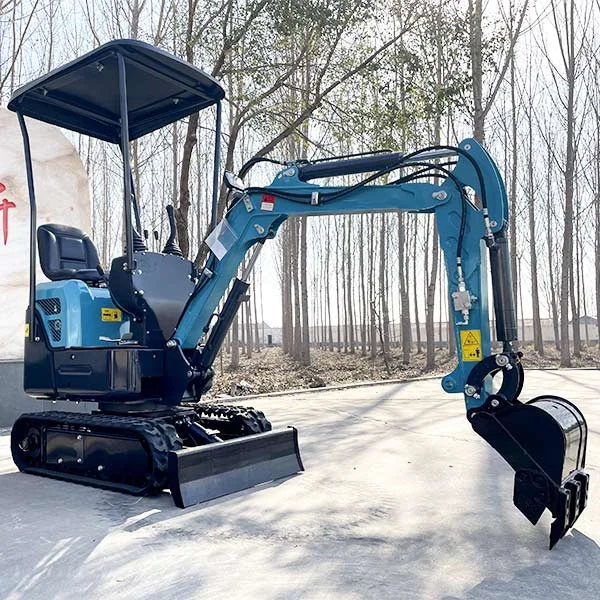
Excavation equipment is essential for digging, moving, and lifting materials during construction or earth-moving projects. These machines are designed to handle various types of soils, terrains, and project scales, allowing contractors and operators to complete tasks efficiently.
Excavation equipment includes everything from backhoes to trenchers, bulldozers to compact excavators, each with unique features tailored for specific tasks. Understanding which machine best suits your project requirements can save time, money, and unnecessary equipment wear.
Factors to Consider When Choosing Excavation Equipment
Selecting the appropriate excavation equipment depends on several factors. By understanding these factors, you can make the right choice for your project needs.
Taille et portée du projet
The size and complexity of your project play a crucial role in selecting the correct excavation equipment. For small-scale jobs like residential landscaping or small foundation work, compact excavators or mini-excavators may be ideal. On the other hand, large-scale commercial or infrastructure projects require more robust and heavy-duty machinery, such as bulldozers or crawler excavators.
Equipment Types Based on Project Size
- Small Projects: Mini excavators, backhoes, compact track loaders
- Medium Projects: Wheeled excavators, skid steers, trenchers
- Large Projects: Crawler excavators, bulldozers, wheel loaders
Terrain and Soil Conditions
The type of terrain and soil you’re working with also impacts your choice of excavation equipment. If your job site is rocky or consists of hard-packed soil, a machine with more power and enhanced stability is necessary. For wet or loose soil, certain equipment like wheeled excavators may struggle, and a tracked option like a compact track loader may be more suitable.
Excavation Equipment for Different Terrains
- Rocky/Hard Soil: Bulldozers, hydraulic hammers, crawler excavators
- Soft/Wet Soil: Track loaders, trenchers, mini excavators
- Sloped Terrain: Crawler excavators, articulated haulers
Excavation Depth and Reach
The depth and reach of excavation needed for your project are critical factors when selecting the right equipment. Some jobs, like digging foundations or basements, may require equipment with a long reach, such as hydraulic excavators. In contrast, shallow trenches or small-scale landscaping projects can be handled by more compact machinery.
Accessoires et polyvalence
Excavation equipment often comes with a range of attachment options, such as buckets, augers, hydraulic breakers, and grapples, making them versatile for various tasks. When choosing excavation equipment, it’s important to consider whether the machine can handle the specific attachments you need. Versatility is a significant advantage, particularly if you need the machine for multiple purposes.
Versatile Equipment with Attachment Options
- Pelles hydrauliques: Augers, buckets, grapples
- Skid Steers: Trenchers, pallet forks, hydraulic breakers
- Rétrocaveuses: Buckets, rippers, front loaders
Budget et coûts d'exploitation
Excavation equipment can range significantly in price, and it’s important to balance your project’s budget with the necessary equipment. Consider not only the purchase or rental cost but also the long-term operating expenses, including fuel consumption, maintenance, and repair costs. Opting for energy-efficient machines with low maintenance requirements may save you significant costs over time.
Table: Comparison of Excavation Equipment Types
Below is a comparison table of different excavation equipment types based on their features, ideal project size, terrain suitability, and estimated costs. This can help you better understand the specific equipment that might suit your needs.
| Type d'équipement | Taille du projet | Adéquation du terrain | Reach (Max Depth) |
|---|---|---|---|
| Mini-pelle | Petit | Soft, Flat, Narrow Spaces | 10-12 feet |
| Excavatrice sur chenilles | Moyen à grand | Rocky, Sloped, Hard Soil | 20-30 feet |
| Chargeuse-pelleteuse | Petit à moyen | Flat, Slightly Rocky | 14-17 feet |
| Chargeuse compacte | Petit | Flat, Hard Ground, Construction | 8-10 feet |
| Excavatrice sur pneus | Moyen à grand | Urban, Flat, Soft Soil | 15-18 feet |
| Tracked Bulldozer | Grand | Rocky, Sloped, Muddy | 6-8 feet |
This table provides an overview of different equipment types, helping you match your project’s needs with the right machinery. Understanding each machine’s reach, terrain compatibility, and cost can help you optimize efficiency and minimize expenses.
Common Types of Excavation Equipment and Their Applications
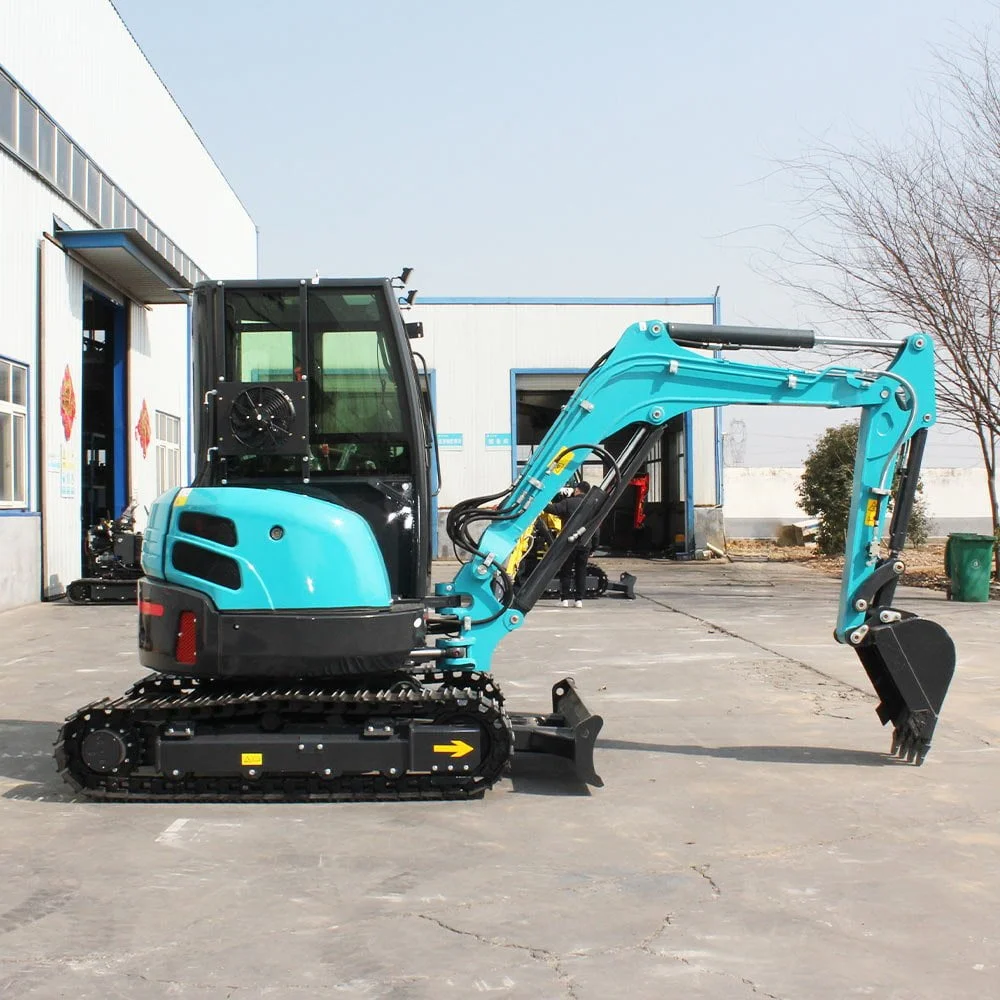
Now that you understand the factors to consider when choosing excavation equipment, let’s take a closer look at some of the most common types of machinery and their specific uses.
Mini-pelles
Mini excavators are perfect for small projects, offering compactness and maneuverability in tight spaces. Despite their small size, they are versatile and capable of handling tasks such as trenching, digging, and demolition in confined areas like urban environments or residential landscapes.
Pelles sur chenilles
Crawler excavators are powerful machines designed for heavy-duty digging in larger, more demanding projects. They operate on tracks, making them ideal for working on uneven or rocky terrain. Crawler excavators are commonly used in construction, mining, and large-scale infrastructure projects where extensive excavation is required.
Backhoe Loaders
Backhoe loaders are versatile, dual-function machines with a front loader and a rear digging bucket. They are commonly used for medium-sized projects, such as digging trenches, loading materials, or breaking concrete. Their ability to handle both digging and loading tasks makes them a popular choice for construction and agricultural projects.
Chargeuses compactes
Skid steers are small, nimble machines that are ideal for smaller excavation projects. They can be fitted with various attachments, making them a versatile option for landscaping, road construction, and other light excavation tasks. Their compact size allows them to operate in tight spaces where larger equipment might struggle.
Bulldozers
Bulldozers are primarily used for moving large quantities of soil or debris. With a heavy-duty blade on the front, they are perfect for grading, leveling, and clearing land. Bulldozers are best suited for large, open areas with rough or uneven terrain, making them an essential tool for large construction projects.
Conclusion
Choosing the right excavation equipment is a critical decision that can affect the efficiency and success of your project. By considering factors such as project size, terrain, budget, and the specific tasks at hand, you can make an informed choice that meets your needs. Whether you are working on a small landscaping job or a large-scale construction project, there is a wide range of excavation equipment available to help you achieve your goals efficiently.
By understanding the unique features and applications of different types of excavation equipment, you can select the best option that will save you time, reduce costs, and increase productivity.
FAQ
What factors should I consider when choosing excavation equipment?
You should consider project size, terrain, excavation depth, budget, and the versatility of the equipment. The nature of the soil and the scale of the work will guide your decision in selecting the right equipment.
What is the best excavation equipment for small projects?
For small projects, mini excavators and skid steers are excellent options due to their compact size and versatility. They can handle light-duty tasks like trenching, digging, and loading in confined spaces.
How do I maintain excavation equipment?
Routine maintenance includes regular inspections, checking fluid levels, greasing moving parts, and cleaning the equipment. Proper maintenance will extend the lifespan of your machinery and prevent costly repairs.
What is the cost difference between renting and buying excavation equipment?
Renting excavation equipment is a good option for short-term or one-off projects and is generally more affordable in the short term. However, if you have long-term or recurring needs, purchasing equipment can be more cost-effective in the long run.
Can excavation equipment handle multiple tasks?
Yes, most excavation equipment can be fitted with different attachments to handle a variety of tasks. For example, a backhoe loader can dig, load, and even break concrete with the right attachments.





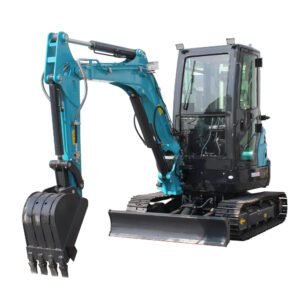
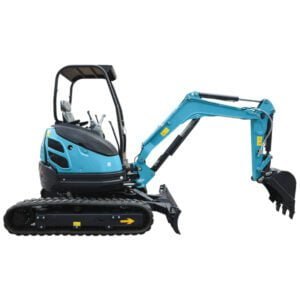
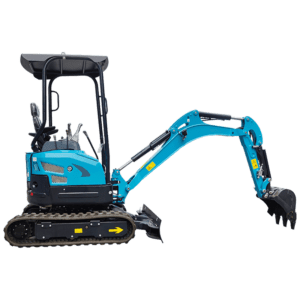

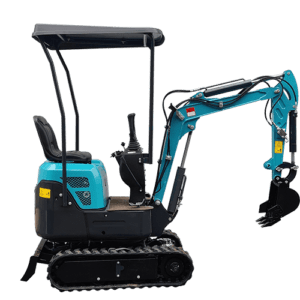

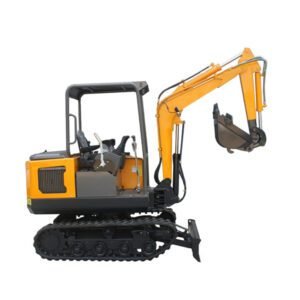

-1.png)